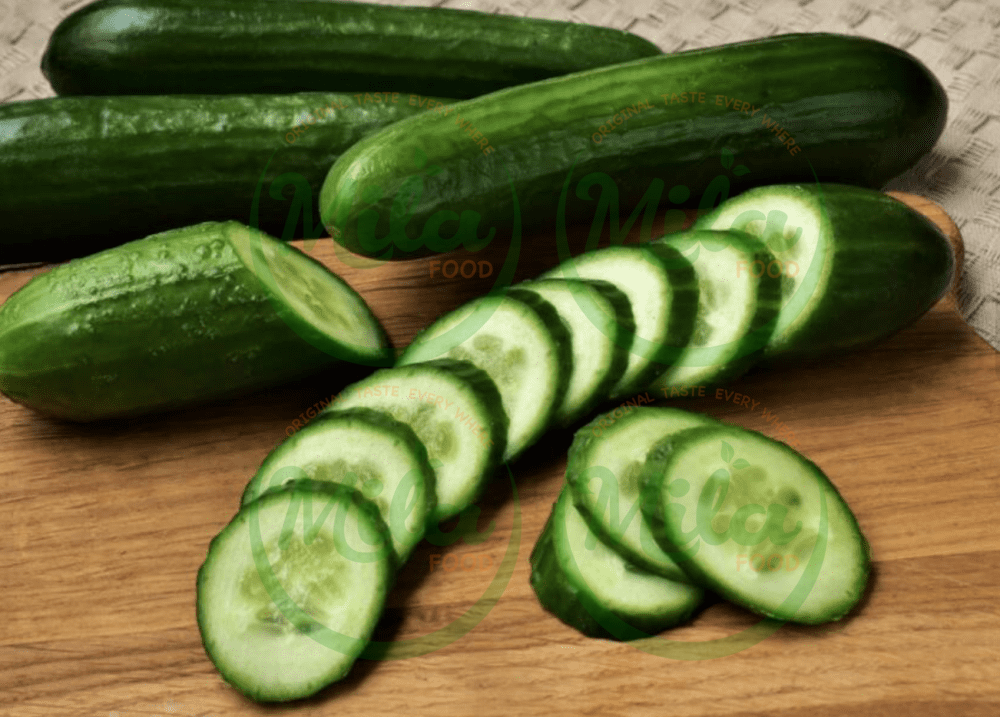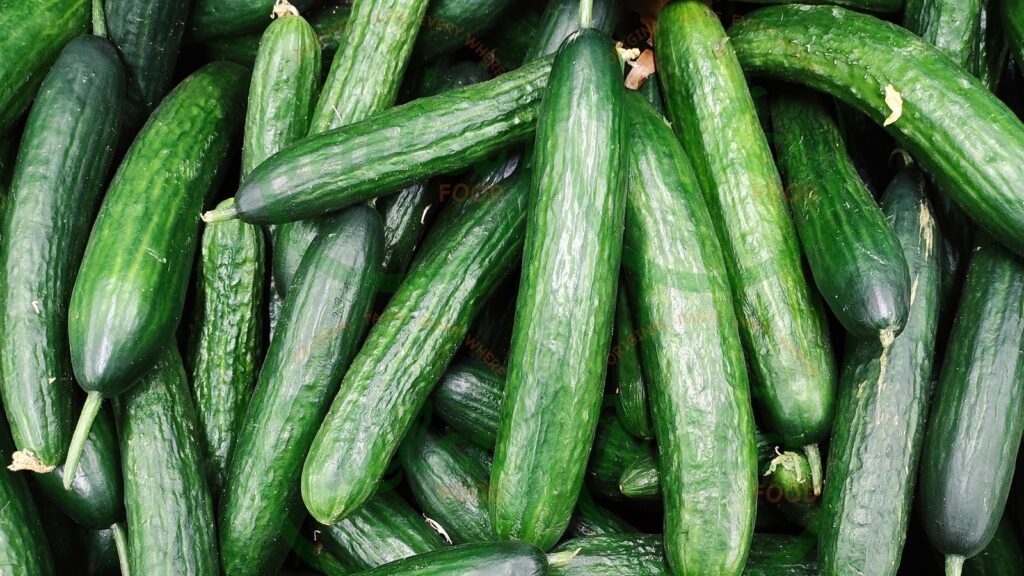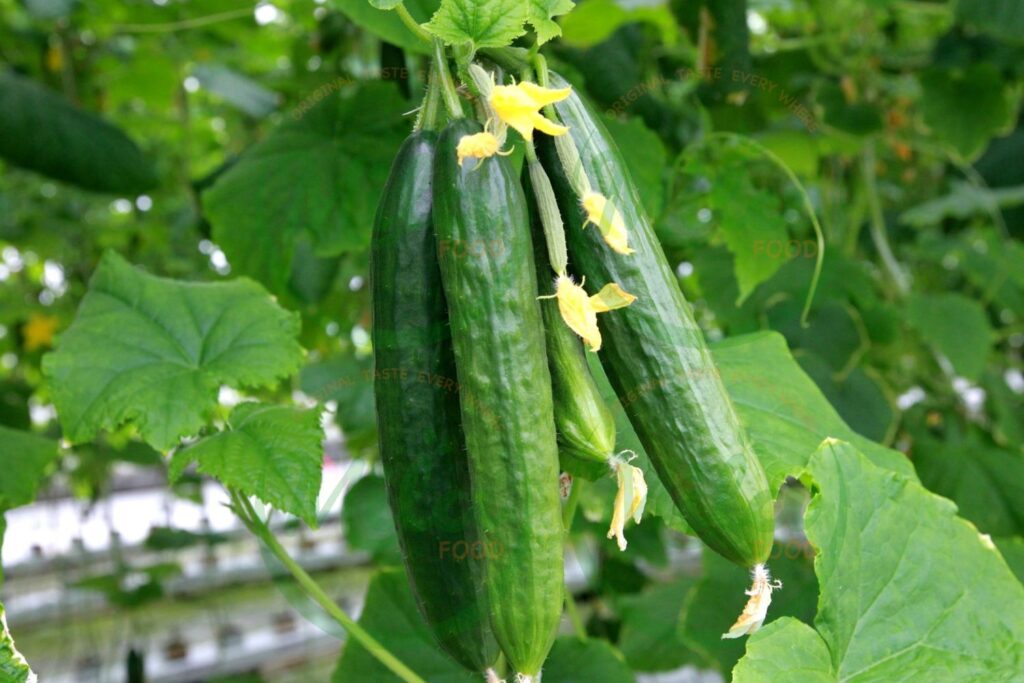


Egyptian cucumbers, where crispness and hydration meet in a delightful crunch. With their mild flavor and high water content, cucumbers have been a cherished ingredient in Egyptian cuisine for centuries, offering a cool and refreshing addition to a variety of dishes. Join us as we delve into the captivating story, culinary uses, and nutritional benefits of these versatile and hydrating vegetables.
History and Origins: Egyptian cucumbers, scientifically known as Cucumis sativus, have a rich history that spans continents and cultures. Believed to have originated in the Indian subcontinent, cucumbers have been cultivated and enjoyed in Egypt for millennia, prized for their culinary versatility and hydrating properties. References to cucumber cultivation and consumption can be found in ancient Egyptian texts and culinary traditions, showcasing their enduring popularity in Egyptian cuisine. Today, Egyptian cucumbers continue to be cultivated in the fertile soils of the Nile Delta, embodying a legacy of culinary excellence and cultural heritage.
Appearance and Flavor Profile: Characterized by their elongated shape and vibrant green skin, Egyptian cucumbers exude freshness and vitality. Their flavor is mild and subtly sweet, with a refreshing crispness that provides a satisfying crunch. Whether enjoyed raw as a hydrating snack or sliced into salads, sandwiches, and dips, cucumbers offer a versatile canvas for culinary creativity.
Culinary Uses and Applications: Egyptian cucumbers are prized for their culinary versatility, lending themselves to a multitude of dishes and cooking methods. They can be enjoyed raw in salads, sandwiches, and wraps, adding a refreshing crunch and hydration to each bite. Cucumbers can also be pickled to create tangy, flavorful condiments or sliced and marinated in vinegar-based dressings for a refreshing side dish. Additionally, cucumbers are a popular ingredient in soups, gazpachos, and smoothies, adding both texture and hydration to the recipe. With their mild flavor and high water content, Egyptian cucumbers are a welcome addition to any meal, offering a burst of freshness and vitality.
Nutritional Benefits: Beyond their refreshing taste and satisfying crunch, Egyptian cucumbers offer a wealth of nutritional benefits. They are low in calories and fat, yet rich in essential vitamins, minerals, and antioxidants. Cucumbers are an excellent source of vitamin K, vitamin C, potassium, and fiber, which support bone health, immune function, and digestive health. Additionally, cucumbers contain phytonutrients such as cucurbitacins and lignans, which have been associated with numerous health benefits, including reduced inflammation and improved heart health. Incorporating Egyptian cucumbers into your diet can help promote hydration, support overall health and well-being, and add a refreshing twist to your culinary creations.
Cultivation and Sustainability: Egyptian cucumbers are cultivated in the fertile soils of the Nile Delta using sustainable agricultural practices. Traditional farming methods, including crop rotation and natural pest control, help maintain soil health and biodiversity while minimizing environmental impact. Whether grown on small family farms or larger agricultural estates, Egyptian cucumbers reflect a commitment to sustainability and responsible stewardship of the land.

